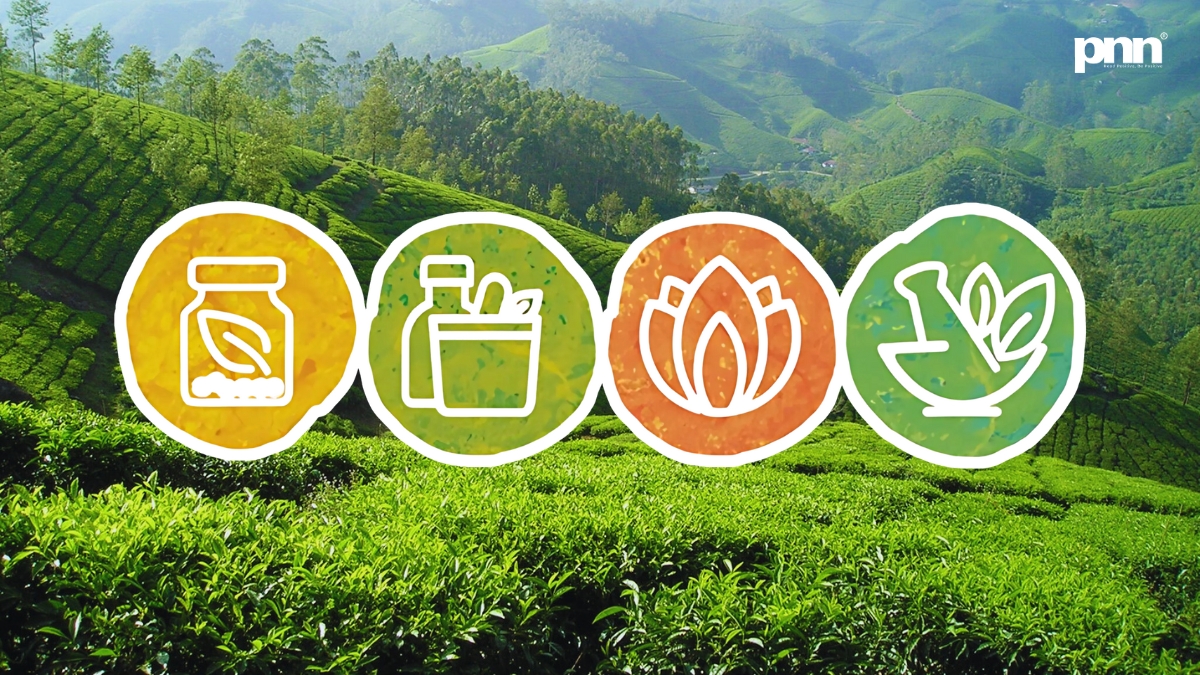New Delhi [India], August 1: In a sunlit corridor of a small wellness centre in Varanasi, a mother waits with her son for an Ayurvedic consult. Just outside, a poster announces a free yoga therapy camp, and across the hallway, a homoeopathic OPD is quietly humming with patients. This isn’t a wellness fad or some boutique retreat. It’s government healthcare, AYUSH, and it’s growing faster than most people realise.
For decades, India’s traditional medicine systems, Ayurveda, Yoga, Unani, Siddha, and Homoeopathy, were treated like side notes in a healthcare textbook dominated by modern allopathy. But the tide has turned. Backed by a strategic push from the Ministry of Ayush, these ancient systems are now stitched into the fabric of India’s national health strategy. And from policy desks in Delhi to outreach vans in Mizoram, the movement is gathering pace.
Regulated, Respected, and Rapidly Expanding – AYUSH
There’s structure behind this surge. Two heavyweight commissions, the National Commission for Indian System of Medicine and the National Commission for Homoeopathy, are laying down the rules for education and practice. It’s not just theory anymore. It’s codified, accredited, and held to evolving standards.
Across the country, 12 national AYUSH teaching institutes are churning out graduates, postgraduates, and PhDs. These aren’t dusty ayurvedic colleges from a bygone era, they’re hybrid spaces blending traditional knowledge with clinical excellence. Many of them run NABH/NABL-accredited hospitals, offer specialised inpatient and outpatient services, and organise health camps in far-flung corners of the country.
What’s quietly brilliant is the way AYUSH integrates local need with national ambition. Whether it’s tribal health camps in Chhattisgarh or OPDs in tier-2 cities, the reach is growing steadily, without losing its roots.
From Healing to Research: A Backstage Powerhouse
Behind the scenes, the research engine is in full throttle. The five autonomous councils, CCRAS (Ayurveda), CCRH (Homoeopathy), CCRUM (Unani), CCRS (Siddha), and CCRYN (Yoga & Naturopathy), aren’t just compiling old scrolls. They’re running field trials, managing mobile clinics, publishing studies, and pushing innovation.
Take CCRAS: it has 30 research institutes, and together with the other councils, it delivers OPD/IPD services, especially to underserved populations. Scheduled Caste outreach, school-based health programs, and even mobile clinical research units are part of the mix. It’s methodical and quietly expansive.
What makes this unique is how culturally intuitive it feels. AYUSH doesn’t alienate, it adapts. And in a country where access matters more than app-based booking, that flexibility is priceless.
Global Eyes on India’s Soft Power Science
Some years ago, a wellness tourist might’ve stumbled into an ashram and left with a bottle of oil and vague instructions. Not anymore. Today, India is actively positioning AYUSH as a cornerstone of medical value travel.
There’s now a formal Ayush Visa category for foreigners seeking traditional treatment. It’s legit. Introduced in July 2023, the system allows certified hospitals to invite patients through a secure Medical Visa Portal, complete with digital verification and structured follow-up. No more ad hoc arrangements or wellness guesswork, just safe, authorised healing journeys.
And yes, the Ministry has bigger plans. Memorandums with tourism departments, international wellness summits, and export support for Indian AYUSH manufacturers are all part of the equation. The endgame? Making India the go-to destination for holistic, science-backed care.
The Human Backbone: Training Tomorrow’s Practitioners
The Ministry knows that big visions need people to carry them. Through the ‘Ayurgyan’ scheme, capacity building and continuing education programs are being run to upskill AYUSH practitioners at all levels.
But it doesn’t stop at national borders. Under the International Cooperation Scheme, India is establishing academic chairs in foreign universities, helping AYUSH providers reach global markets, and facilitating workshops that bring ancient knowledge to the global academic stage.
The talent pipeline is real. CCRAS is investing in students through programs like SPARK (for undergrads), PG Star (for postgrads), and PRAYATNA (to polish writing and research skills). Even research methodology and biostatistics are being taught through ARMS, because credibility begins with data.
What’s beautiful is how the old is not being replaced, just refined.
Setting the Bar for Quality and Trust
Let’s be honest, AYUSH had a quality trust gap for years. To fix that, the Ministry isn’t just talking; it’s training. The Pharmacopoeia Commission for Indian Medicine and Homoeopathy is holding the fort on drug standardisation and safety testing. Drug analysts, regulators, and labs are now being equipped with 21st-century methods to test ancient formulations.
At the manufacturing end, IMPCL, the Ministry’s PSU, is producing certified medicines that are supplied to government hospitals across India. It’s quiet work, but it’s building public trust, dose by dose, batch by batch.
Conclusion
Maybe the most surprising thing about AYUSH’s comeback isn’t that it’s happening, it’s that it’s working. In a time where health is either hyper-digital or hyper-expensive, AYUSH feels… different. Grounded. Familiar. Affordable.
It doesn’t promise a silver bullet. It doesn’t wear the glow of Silicon Valley. But what it does offer is continuity, a healthcare system that has walked with Indian civilization for centuries, now walking into the future with science, systems, and soul intact.
And that, perhaps, is India’s greatest healing story.


